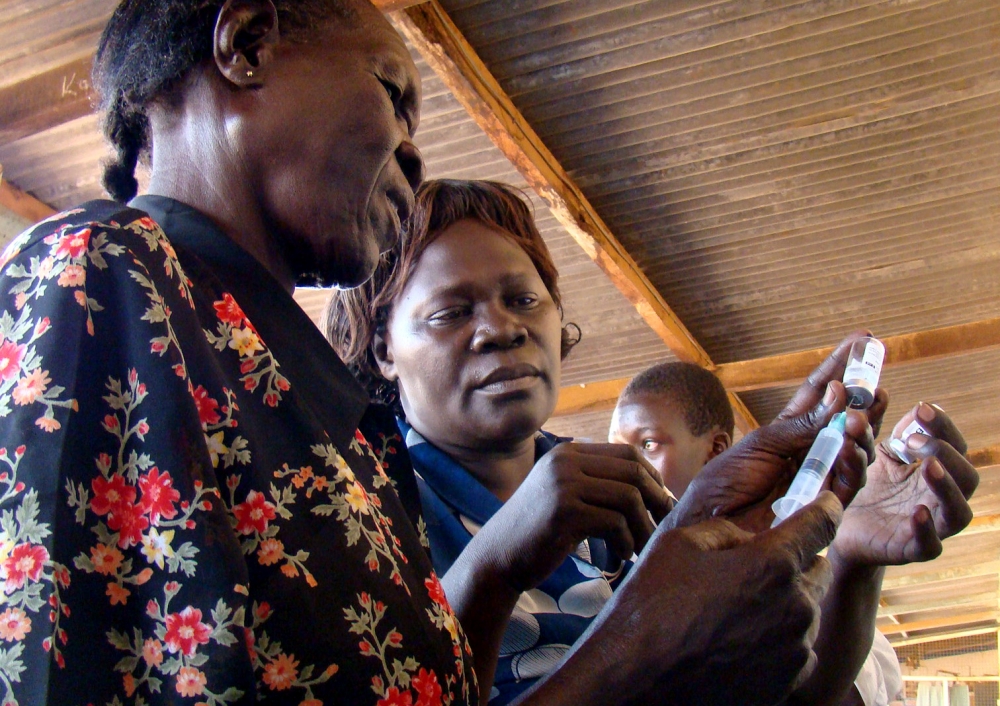The Gulu District Health Department is set to rollout vaccines to protect babies from the deadly meningitis.
It follows the conducting of an orientation of health personnel on the meningitis vaccinations that will be carried on the 19 January 2017 facilitated by the Ministry of Health and local NGO, Reproductive Health Uganda.
The five-day vaccination that is targeting children above one years old and adults below 30 in over 39 districts of Uganda.
Mrs Baku Agnes one facilitators says the training will be decentralizing to the sub county level where health workers at the grassroots be trained.

The disease can infect the lining of the brain, spinal cord, and bloodstream. Among the symptoms are persistent headache, fever, and neck stiffness.
“When you get the symptoms of meningitis, the very first symptoms look just like a common cold or flu, and yet within 24 hours people can die from this disease …,” says New Hope Medical Centre Uganda’s Niyibizi Richard, who is also TheUgandan‘s resident medical expert.
“This is a very serious disease,” he said. “Meningitis is every parent’s nightmare.”
Children are considered to be more at risk as they enter middle and high school because of their close proximity with other students. Secondary school students living in dormitories and military personnel living in barracks are also considered to be at higher risk.
Uganda lies within the African meningitis belt, stretching from Senegal in the west to Ethiopia in the east, according to WHO. The region, experiences meningitis cycles whenever the dry season sets in. While vaccination can significantly reduce mortality, the exact strain of meningitis needs to be identified before vaccines are administered.
Typically, the disease has a mortality rate of 5 to 10 percent, with death occurring within 24 to 48 hours, while some survivors suffer brain damage, hearing loss or learning disabilities.
For more information on vaccines, visit the Reproductive Health Uganda website http://www.rhu.or.ug/











